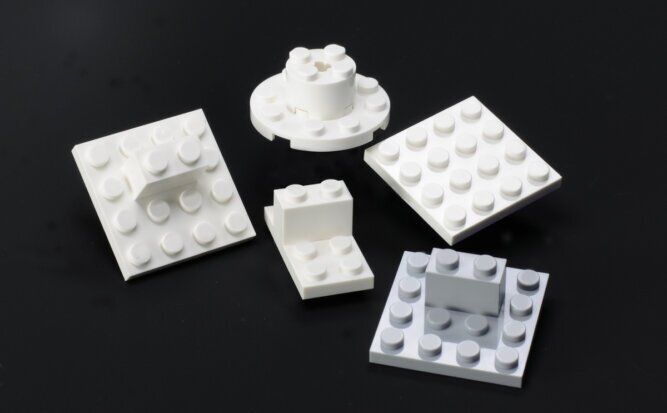Find the difference that makes the difference

Differences can be observed in the circumstances
represented by the 3D-Action-Frame of space, time, and topic. Perceived
stimuli, news, and ideas provide information that creates differences that make
a difference. Perception, thinking, communication, and action are built upon
business content, including customer segments, areas of responsibility, project
phases, and other relevant elements. They are found in distinct fields and on
different levels of detail. Nothing exists as long as we don’t delimit it from
the rest
(based on Gregory Bateson and George Spencer-Brown).
To do this, it is necessary,
- Recognizing the elements of a situation, differentiating one from another, and understanding their relationships.
- Identify the patterns in the circumstances. (See illustration: Which of the five assemblies does not match the other four? And why?)
- Finding the leverage points with which the desired changes can be triggered.
Differences, for their own sake, are creating more expenses than adding value. For this reason, new differences require a business case – a new software program that neither saves costs nor generates additional income makes no sense.

